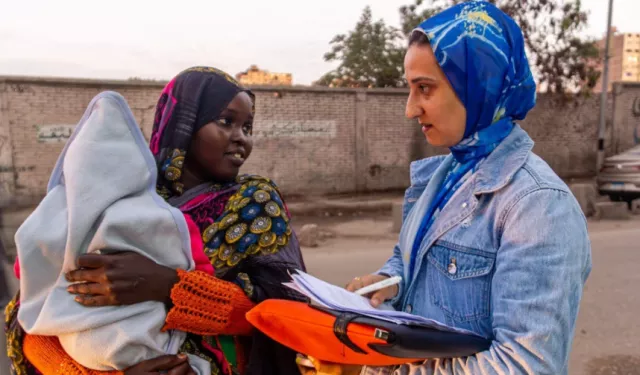Egyptian security forces have launched a sweeping and racially targeted crackdown on African refugees and asylum seekers over the past two weeks, according to Noor Khalil, director of the Refugees Platform in Egypt, who spoke to Al Manassa.
Khalil directly blamed Interior Minister Mahmoud Tawfik for the arrests, saying this marks a repeat of a similar campaign conducted just four months earlier. He described the raids as an “ongoing crime” and demanded immediate intervention by Egypt’s political leadership.
RPE has documented a spike in arbitrary arrests through reports filed via its digital legal clinic, Khalil explained to Al Manassa. “Over the past two weeks, there has been a marked escalation in detentions of African nationals in Egypt—particularly Sudanese, Eritrean, and Cameroonian individuals,” he said.
He emphasized that the arrests were largely random and racially motivated. “Security forces are stopping people based solely on the color of their skin,” Khalil said.
RPE’s monitoring confirmed that the detained include women, men, and children—many of whom are officially registered with the United Nations High Commissioner for Refugees (UNHCR).
In a Facebook post on Wednesday, Khalil revealed that although the public prosecution has ordered the release of detainees due to the absence of legal charges, many remain imprisoned. Moreover, Khalil adds, the prosecution also finds that the lack of residency paperwork is due to a system backlog on the UNHCR's side, which often assigns residency review appointments for applicants for “as late as 2028.”
“Release orders are not being enforced,” he wrote, adding that the National Security Sector and the Passports, Immigration, and Nationality Authority are detaining individuals administratively.
“These people are later deported—even refugees—to countries where they face real danger, such as Eritrea and Sudan. In some cases, non-Sudanese nationals are being sent to Sudan.”
Khalil warned that the state’s approach represents an accelerating crisis. “We’re witnessing the erosion of legal protections under a new asylum regime that openly violates Egypt’s international obligations,” he said.
He blamed the immigration authority for creating a system in which refugees are stripped of services, denied residency renewals, and blocked from accessing protection. “Survivors are also being prevented from reporting the abuses they suffer,” he added.
In November 2024, Egypt’s parliament passed a national asylum law—the first of its kind—which was ratified by President Abdel Fattah El-Sisi the following month.
However, the law drew immediate condemnation from seven UN Human Rights Council rapporteurs, who expressed “serious reservations and fundamental concerns” in a joint letter to the Egyptian government.
The UN experts argued that the law “falls significantly short of international standards and Egypt’s binding legal obligations under refugee conventions,” which form part of the country’s constitutional framework.
On Nov. 14, 2024, the Egyptian Initiative for Personal Rights and RPE submitted a detailed legal memorandum highlighting the law’s many contradictions with international norms on refugee rights, protections for trafficking victims, and survivors of torture. The memo identified multiple violations of fair trial guarantees and human rights standards.
The International Organization for Migration estimated in August 2022 that Egypt hosts approximately 9 million migrants overall from 133 countries. According to UNHCR, over 792,000 refugees and asylum seekers from 62 nationalities are registered in the country.
Since October 2023, Sudanese nationals have constituted the largest refugee population in Egypt, followed by Syrians, South Sudanese, Eritreans, Ethiopians, Yemenis, Somalis, and Iraqis.
